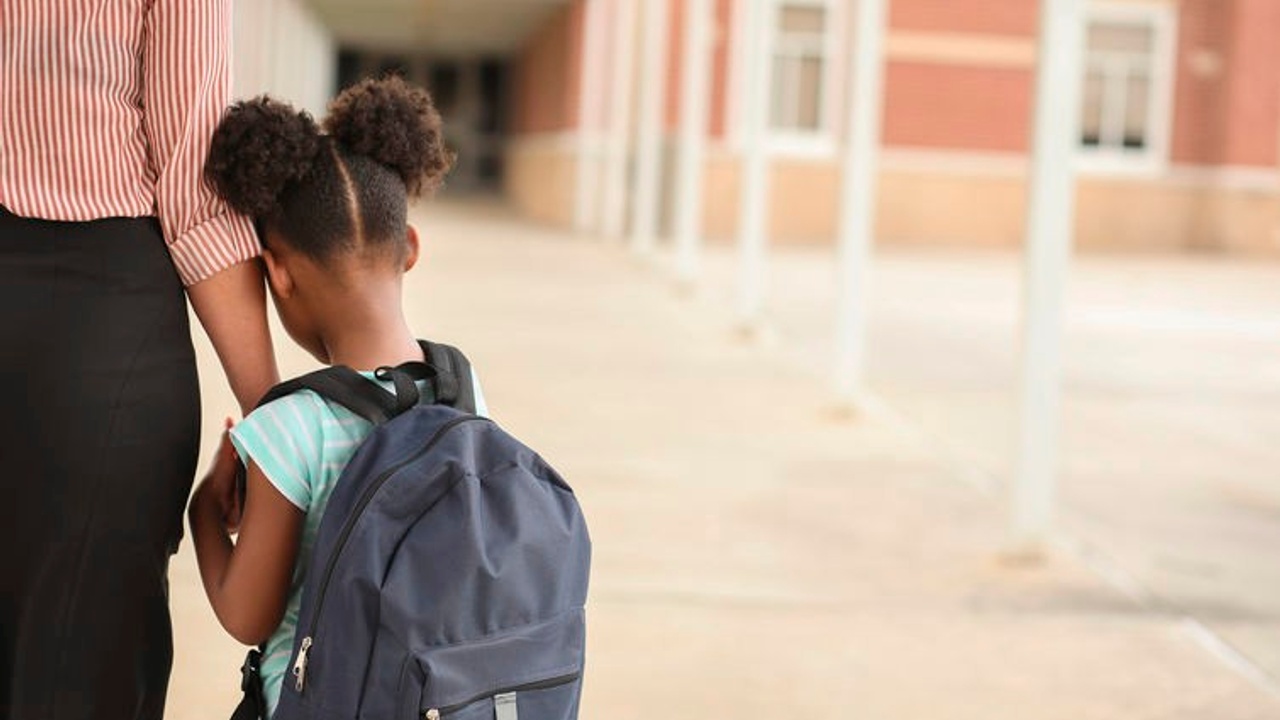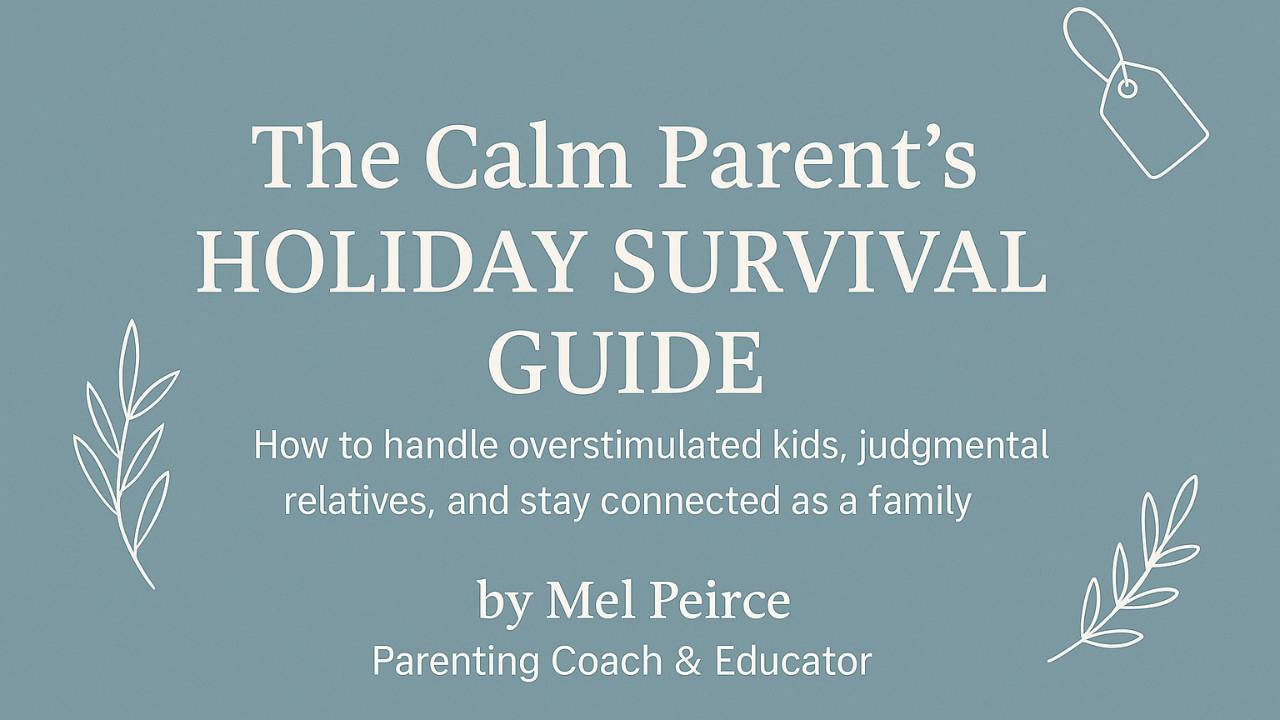Intentional Parenting to Help Your Child With Anxiety
Aug 25, 2021
Does your child get anxious over upcoming transitions? School is coming, and that means a number of unknowns for kids. Will they like their new teacher? Will they make new friends? What activities will they be doing this year and will they like them? There are so many new things, and many of these can make them anxious.
Our brains prefer predictability, they like to remain safe and comfortable. That is why upcoming transitions can generate anxiety — for our kids and for us.
New experiences can be uncomfortable for our children, and this is completely normal. Kids are going to have new experiences time and time again during their childhood. As parents, it helps to be prepared ahead of time because your child’s anxiety may show up in unexpected ways.
If you find that your child is unusually reactive, picking fights with siblings, or getting upset over seemingly small things it may be their anxiety over the upcoming transition manifesting — and they likely aren’t even aware they are doing it or why they are doing it.
In my blog on parenting through transitions, I addressed how to normalize the negative feelings and ask questions to help your kids gain self-awareness and gain a better understanding of their emotions. If your children are receptive, talking about the upcoming transition — and how it’s completely normal to be nervous can bring awareness and help them make sense of their tumultuous emotions. It is best to just ask questions, and avoid any advice so they remain open and receptive. If you are unsure of how to do this, refer to my article on Active Listening.
In addition, it’s helpful for us to know ahead of time that our child’s discomfort can bring up similar feelings in us too. When our children are uncomfortable our first instinct is typically to “fix” things for them as soon as possible. Our brains know that if our kids feel better then we will feel better. So before you have these conversations with your kids, I recommend that you stop and assess the energy that YOU bring to the conversation and situation.
Think about how when you walk into a room where a couple have just had a fight, and how you can feel the tension and heavy energy in the air. But when you are around people that are happy and joyful you can feel that energy too. At times that higher energy level can help us rise to that level of joy, and if we aren’t careful we can also be dragged down to a lower energy level. Have you ever been told that you ruined the mood of the family with your bad mood? This is what I mean by assessing the energy that you are bringing to the conversation and situation.
As parents it’s important to recognize the subtext behind your child’s anxiety, because anxiety can be an indicator of self-doubt. Your child is nervous about their ability to navigate the new unknowns, because they haven’t developed a strong belief in themselves yet.
When they are in self-doubt, our kids can look to us to see how they should feel about themselves. So when we get sucked into their energy of anxiety and worry over the new transition with them, we reflect anxiety back to them, confirming their own self doubt. They see that as a “vote of no confidence” in them.
However, when we hold the energy of calm and confident, we hold space for them to join us at that level. We are a lighthouse in their stormy sea of emotions that is calling out to them. When we hold the energy of confidence in our kids, we can actually boost their own confidence and help them believe in themselves.
Kids hear our thoughts and feelings, not always what we say. So it’s important for us to monitor what is coming up for us. Remember that when your child is anxious your brain is going to want to run the “something is wrong” program. But you can be proactive and remind yourself that nothing has gone wrong. Get intentional about showing up in the energy of confidence and holding that space for your child, reflecting that confidence back to them. This is what you do when you DON’T join them in anxiety and worry.
Please note, this is NOT about just telling your kids they are going to be fine and dismissing their worries. I don’t recommend that you say any of these thoughts out loud to them. If you do they may not feel heard and may shut down. This is more of an internal game for you. Believing that nothing has gone wrong, and believing your child is going to experience these new situations in a way that is perfect for them. When you have these thoughts, you’re less likely to sink into anxiety and worry, and more likely to stay in a calm and confident energy without ever saying a word to your child. Remember, they pick up on your thoughts and feelings, that is what you will reflect back to them. This is intentional parenting with your kid’s emotional health in mind!
If you are a caring and concerned parent of a child struggling with anxiety and worry, you likely believe that it’s your job as a good parent to help them. But if you don’t know how to help your child with anxiety and worry, it’s highly likely that you weren’t taught how to effectively handle anxiety and worry as a child either. Unfortunately, when children aren’t taught to handle these feelings they grow into adults that look for solutions for negative feelings which can lead to overeating, overdrinking, and overconsuming to find a quick fix to feel better… just look around, you see evidence everywhere. As parents, we can stop this cycle! When we learn how to help our children deal with anxiety, we help raise the emotional health of the next generation, and as a bonus we feel better too.
Go to melpeirce.com/StopTheWorry to access my free 3 Steps to Stop the Worry video training series and learn real and tangible tools that you can use to help your child through their worry and anxiety now, as well as how to teach them the skills to deal with it throughout their life.
Join the Confident Parenting Community.
Receive the latest tips and tools from the Confident Parenting Toolbox to support your kids
(and yourself!) with today's challenges so your whole family can thrive.
We hate SPAM. We will never sell your information, for any reason.


